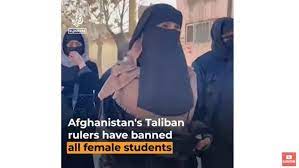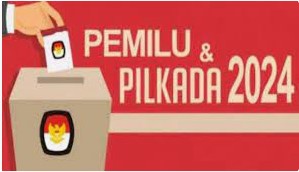
STRATEGIC ASSESSMENT. As the field for next year’s Indonesian presidential election takes shape, President Jokowi appears to be weighing two prospective candidates who have promised to pick up where he leaves off, including a former political rival in a different party. Three months before the official start of candidate registration, Defense Minister Prabowo Subianto posted a photo on Instagram showing himself having a friendly lunch with Jokowi at the presidential palace in Bogor.
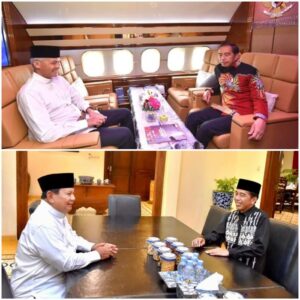
Lately, he has emphasized his closeness to the president, calling him a leader capable of bold decisions. The largest ruling party, Jokowi’s Indonesian Democratic Party of Struggle (PDI-P), has already chosen Central Java Governor Ganjar Pranowo as its candidate for the February election. Jokowi’s personal political base of grassroots supporter groups, centered on independents, has allowed him to steer policy without being beholden to Sukarnoputri.
Cracks have emerged in Golkar, Indonesia’s oldest political party, as it suffers a dip in popularity and internal bickering on which presidential candidate to support ahead of February’s general election. Prominent Golkar members, such as ministers Luhut Pandjaitan and Bahlil Lahadalia who are vying to take over the chair’s post, have sounded the alarm over the fall in popularity from 12 percent of public support four years ago to around six percent currently.
They have put the blame on Chair Airlangga Hartarto. Golkar won around 12 percent of the votes in the 2019 election, securing 85 seats to make it the second-largest party in Parliament behind the ruling PDI-P, which has 128 seats. Political observers suspect that President Jokowi had a role to play in the feud within Golkar, given Airlangga’s reluctance to support Jokowi’s favored presidential candidate Prabowo Subianto, 71.
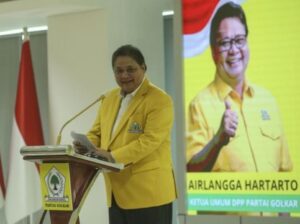
Golkar Party Chair Airlangga Hartarto on Sunday met with the party’s 38 regional representative council chairs in Bali. During the meeting, several Golkar councils pushed Airlangga to support Gerindra Party Chair Prabowo Subianto. Golkar West Kalimantan Regional Chair Maman Abdurahman said a number of Golkar regional councils asked them to form a coalition with Gerindra. Meanwhile, at the meeting, Airlangga and the Golkar regional leaders also addressed the rejection of the extraordinary national conference.
According to the latest 2024 vice presidential candidate survey released on Saturday by the Indonesian Survey and Polling Institute (SPIN), figures with military backgrounds are in high demand, with two competing names: former TNI Commander General Andika Perkasa and Democratic Party Chair Agus Harimurti Yudhoyono (AHY). According to SPIN Executive Director Mawardin Sidik, Andika’s position as a vice presidential candidate in the July survey has skyrocketed, and he is now widely regarded as a rising star.
Golkar Party Chair Airlangga Hartarto received a visit from Indonesian Democratic Party of Struggle (PDI-P) Council Chair Puan Maharani. According to Airlangga, the meeting was a follow-up meeting to demonstrate political continuity and stability between the two political parties. Even though they frequently compete in every election, Airlangga said that the PDI-P and Golkar have always worked together in government. He also hopes that this collaboration will continue until the upcoming elections in 2024.
President Jokowi has rejected a suggestion that his administration is behind a plot to oust Airlangga Hartarto as Golkar Party Chair and replace him with a politician from the President’s inner circle. Appearing at an atypically tense press briefing at Halim Perdanakusuma Air Base in East Jakarta before his departure to Chengdu, China, Jokowi distanced himself from the feud unfolding between the Airlangga camp and his potential rivals in Golkar.
“It is an internal Golkar affair and has nothing to do with us,” the President said in response to a reporter’s question suggesting that Maritime Affairs and Investment Coordinating Minister Luhut Panjaitan, Investment Minister Bahlil Lahadalia, and People’s Consultative Assembly Speaker Bambang Soesatyo had been gunning for the Golkar chairmanship. Jokowi also refuted speculation that he had kept Airlangga behind following a budget meeting the previous day to discuss politics, saying that the only additional discussion that day centered on how to repatriate export earnings.
After meeting with National Awakening Party (PKB) Chair Muhaimin Iskandar on Thursday, Indonesian Democratic Party of Struggle (PDI-P) Central Council Chair Puan Maharani confirmed that Muhaimin would be one of the candidates for the vice-presidential candidate to accompany Ganjar Pranowo in the 2024 presidential election. However, Puan said that no decision had been made on who the vice president candidate for Ganjar Pranowo would be. She said the meeting focused on uniting the vision and mission for the nation and country and did not discuss the candidacy. PKB Deputy Secretary-General Syaiful Huda emphasized that PDIP’s offer had not tempted PKB because it was still with the Gerindra Party.
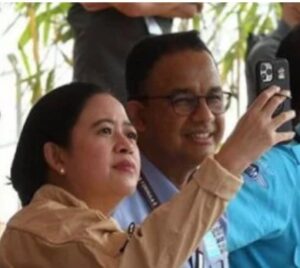
Chairwoman of the Central Executive Board of the Indonesian Democratic Party of Struggle (PDI Perjuangan), Puan Maharani, met with Chairman of the Great Indonesia Movement Party (Partai Golkar), Airlangga Hartarto, in Jakarta. The meeting is one of several political gatherings organzied by Puan to explore coalitions for the 2024 elections. Prior to her meeting with Airlangga, Puan also met with the Chairman of the National Awakening Party (PKB), Muhaimin Iskandar, at the Widya Chandra complex.
Former law and human rights deputy minister Denny Indrayana said that the Indonesian Solidarity Party’s (PSI) lawsuit at the Constitutional Court (MK) concerning the minimum age requirement for presidential and vice-presidential candidates in the Election Law must be opposed. According to him, the purpose of PSI’s lawsuit is not to fight for the rule of law or the rights of young people, but rather to allow Solo Mayor Gibran Rakabuming Raka to run as a vice presidential candidate in the 2024 presidential election.
A recent meeting between opposition presidential candidate Anies Baswedan and former maritime affairs and fisheries minister Susi Pudjiastuti has led to speculation that he is considering her as his running mate, a notion that has split, yet again, the three-way alliance backing his candidacy. He visited Susi at her private residence in the coastal West Java regency of Pangandaran. “[We had] casual conversations about a lot of topics. Some were serious, some were light-hearted, and some were about political and social [issues],” Anies said of his meeting with Susi, as quoted by Kompas.com. Susi, meanwhile, reportedly declined to answer when reporters asked whether she and Anies had discussed the question of his running mate.
The ruling Indonesian Democratic Party of Struggle (PDI-P) has sought to reaffirm President Jokowi’s support for its presidential candidate Ganjar Pranowo, following speculations over whom the leader will endorse. Puan Maharani, daughter of PDI-P chairwoman Megawati Soekarnoputri and speaker of the House of Representatives, said at a party event that Jokowi would back the PDI-P candidate. “I believe that Jokowi will continue to stay with the PDI-P,” Puan said. “The president has been supported and promoted two times [in electoral runs] by the PDI-P. In the next election, he will do the same.”
Jokowi, a PDI-P member, has widely been called the kingmaker of the next election, but is yet to officially endorse a candidate. The PDI-P also described Jokowi and Ganjar as “inseparable”, pointing to Jokowi’s role in hand-picking a campaign team for the Central Java governor in a press release last week. The identities of the members of the team, coined “team-seven”, are yet to be revealed, but PDI-P Secretary General Hasto Kristiyanto said they would work closely with Ganjar as he begins campaigning unofficially.
The Indonesian polling agency Indikator published the results of a survey asking 1,220 prospective voters who they are likely to support at next year’s presidential election. Leading the three most likely contenders, albeit by a slim margin, was Defense Minister Prabowo Subianto, a Suharto-era special forces commander who has twice run for the presidency. According to Indikator, the poll showed Prabowo with the support of 36.8 percent of respondents, narrowly ahead of Central Java Governor Ganjar Pranowo with 35.7 percent and former Jakarta governor Anies Baswedan with 21.5 percent, according to a summary by Reuters. In a two-way race, Prabowo had a clear lead over Ganjar, 49.5 percent to 40.9 percent.
President Jokowi explained why he invited Defense Minister Prabowo Subianto and SOEs Minister Erick Thohir to visit the Bululawang Market in Malang, East Java, and PT Pindad defense equipment factory together. According to Jokowi, the two were invited because Prabowo and Erick had affairs with weapons procurement at PT Pindad. When asked if he invited the two because he wanted to pair Prabowo and Erick in the presidential election, Jokowi said they only wanted to review PT Pindad. Jokowi said that the original Indonesian defense equipment company was currently receiving a large number of export requests.
Prabowo Subianto is hoping it will be third-time lucky in his bid to become leader of Indonesia as Jokowi’s two-term presidency ends next year. A survey published earlier this month by pollster Lingkaran Survei Indonesia showed Prabowo in the lead with a 34.3 percent approval rating, gaining ground after months of consistently placing behind Central Java governor Ganjar Pranowo, who received 32.7 percent of the vote.
Experts suggest the former military general has worked to rebrand himself, shifting away from his former strongman persona by taking a softer tack in his speeches and using an impressive social media campaign to connect with younger voters. Accusations that used to trail the minister of a concerning human rights record have largely been forgotten by the media and the public, experts say, replaced with an image of an even-tempered and easy-going politician, sharing viral selfies wearing a hoodie sporting his Gerindra Party branding.
“He has been working to present himself as a team player as part of Jokowi’s administration. He’s portraying himself as Jokowi’s man,” said Yoes Kenawas, a political researcher from Lingkaran Survei Indonesia. This perceived closeness to Jokowi might be the key for Prabowo, analysts said. Even as he exits leadership, Jokowi has managed to keep his approval rating at an all-time high, and he is widely considered the kingmaker of the coming election. Prabowo has repeatedly stated that he would carry forward Jokowi’s programs as president if he is elected in February, including continuing the construction of a new $32 billion capital Nusantara in Borneo, and the revamping of the domestic mining industry.
Defense Minister Prabowo Subianto retains an early lead ahead of the 2024 presidential election, with an opinion poll on Sunday showing support for the ex-special forces commander is particularly strong among young voters. The Indikator poll, which focused on canvassing the views of young voters, showed Prabowo with a slim to sizeable lead based on various scenarios.
Conducted between June 20 and 24, the poll surveyed 1,220 people across the world’s third-largest democracy, with more than 60 percent of respondents aged below 42. Around 107 million, or more than half of voters registered for the February 2024 poll, are under 40, according to electoral data. In a match-up among the top three presidential contenders, the poll showed Prabowo with 36.8 percent, narrowly ahead of Central Java Governor Ganjar Pranowo with 35.7 percent and former Jakarta governor Anies Baswedan with 21.5 percent.
Tension within the Golkar Party is brewing, as an open broadside unleashed by some party members against the presidential bid of chairman Airlangga Hartarto in next year’s election has prompted some of his other colleagues to express readiness to take over his post in a snap party poll. Several senior Golkar politicians have begun presenting themselves as viable alternatives to Airlangga to help rejuvenate the country’s oldest party, which is facing a dip in popularity ahead of the 2024 presidential and legislative elections. Airlangga has been eyeing to run for president despite his persistently low electability in various opinion polls.
Luhut Pandjaitan, who chairs the party’s advisory board and serves as the coordinating maritime affairs and investment minister in the Cabinet, suggested in an interview with Kompas TV last week that he was ready to contest the party leadership poll to replace Airlangga if there was support among members. While he stressed that he preferred to not have any fight with Airlangga, Luhut took aim at the current leadership for “appearing to be selling itself short, offering itself to too many.”
Investment Minister Bahlil Lahadalia and Maritime Affairs and Investment Coordinating Minister Luhut Binsar Pandjaitan are ready to run as candidates for Golkar Party chair to replace Airlangga Hartarto. Luhut expressed his willingness to run for the position, only if it does not cause a fight with the current chair Airlangga. Bahlil felt that Golkar needs a helping hand because its survey continues to decline. The current political facts, said Bahlil, are that Golkar’s electability has fallen to only six percent, or 50 percent from the results of the 2014 and 2019 elections, which were still around 12 percent at that time.
Democratic Party Chairman Agus Harimurti Yudhoyono (AHY) spoke out against Maritime Affairs and Investment Coordinating Minister Luhut Binsar Pandjaitan’s remark that he was a “plebeian.” This is related to AHY’s statement that there was an attempt to obstruct Anies Baswedan’s presidential candidacy. According to AHY, there were efforts to prevent the Coalition for Change from taking place. AHY emphasized that he had the right to voice his opinions regarding indications that certain political elites appeared to be orchestrating the elections. “We can only hope that this does not happen. This is part of Indonesia’s maturing political and democratic process,” he said.
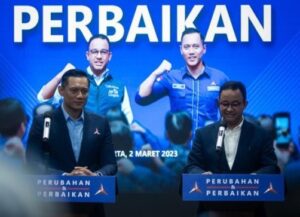
In a move that further highlights the unraveling of the coalition of pro-government parties, Gerindra Party officials visited the headquarters of the Democratic Party, the leading opposition party, in Menteng, Central Jakarta. The high-profile visit came as the momentum of the candidacy of Gerindra Party leader Prabowo Subianto gathered pace, with the latest polls placing the former military general as the man to beat in the next election and a recent Cabinet shake-up largely seen as a power move by President Jokowi to distance himself from the Indonesian Democratic Party of Struggle (PDI-P), the largest ruling party, by appointing a pro-Prabowo figure as the new communications and information minister.
The Democratic Party has found itself at the center of increasingly fluid alliance building ahead of the November deadline for presidential-candidate registration, with pro-government parties lining up to welcome the party into their respective folds despite the Dems’ commitment to backing the leading opposition figure. The Democrats have already joined forces with the NasDem Party and the Prosperous Justice Party (PKS) in an electoral alliance dubbed the Coalition for Change and Unity (KPP), which endorses former Jakarta governor Anies Baswedan as its presumptive presidential candidate. But the Democrats have been meeting with the pro-government parties, which are seeking to build bigger alliances and bring the largest opposition party into their respective electoral blocs.
The 2024 general elections will likely go down in history as Indonesia’s first TikTok election, given the rising popularity of the Chinese video-hosting service in the country. United States-based social media platforms such as Facebook, Instagram and Twitter will still play a role in the upcoming elections. But they will not be the only players in the game anymore. In fact, they may no longer serve as the primary battleground for election contenders seeking to capitalize on the new generation of voters: the Gen Zers. The rise of TikTok is part of a generational shift in global society, which comes at a time when China is emerging as an economic powerhouse. TikTok has taken the world by storm, and it is only a matter of time before it reshapes our electoral politics.
The recent Cabinet shake-up saw President Jokowi double down on his distinct brand of economic diplomacy, albeit at the risk of neglecting some of the nation’s most strategically important bilateral ties. This week saw the addition of a seasoned businessperson to the Foreign Affairs Ministry’s top roster, while two highly coveted ambassadorship posts, Washington, D.C. in the United States and Seoul in South Korea, have been vacated after Monday’s reshuffle.
Former deputy state-owned enterprises minister Pahala N. Mansury has been given the new task as deputy foreign ministry, while Rosan P. Roeslani left his post as the Indonesian ambassador to the United States to fill Pahala’s old post at the State-Owned Enterprise (SOE) Ministry. Meanwhile, Gandi Sulistiyanto, the Indonesian envoy to South Korea since late 2021, also returned home to be appointed as a new member of the presidential advisory board (Wantimpres).
Rosan’s return from Washington coincides with Jakarta’s growing frustration with the United States and its allies in its funding pledges for the Just Energy Transition Partnership (JETP), sparking questions of intent. Maritime Affairs and Investment Coordinating Minister Luhut Pandjaitan conveyed his frustration over the $20 billion pledge, saying he remains uninformed about the reasons behind the delayed disbursement despite Indonesia’s efforts to lay the adequate groundwork as part of the deal.
The high turnover is unusual compared with other countries, such as Singapore, whose ambassador to the United States Ashok Mirpuri just left the post this year since first coming to Washington in 2012, said Aaron Connelly, an international relations expert from the International Institute for Strategic Studies (IISS). Recalling an envoy before his or her term is complete is often considered a diplomatic snub.
Officials have not made any comments on the matter. “I think Jokowi regards the U.S. business community as a more important partner than the U.S. government,” Connelly told The Jakarta Post. But the high turnover for the envoy post in Washington might injure Indonesia’s foreign interests, including Jokowi’s own ambition for the economy. With the Indonesian post now empty in Washington, D.C., the U.S. Embassy in Jakarta has issued a statement saying that the U.S. government was looking forward to working with the next ambassador.
President Jokowi hosted NasDem Party Chair Surya Paloh at the State Palace after having shunned the coalition member for months over his party’s support for opposition presidential candidate Anies Baswedan, in a détente that analysts say could be aimed at influencing a possible runoff election. The evening meeting lasted about an hour and followed a surprise Cabinet shake-up earlier in the day in which the President appointed more loyalists to top positions, including key supporters from his presidential campaigns and figures from the private sector. Analysts believe Jokowi is seeking to consolidate power through his Cabinet picks as the end of his presidency approaches.
NasDem Party Chair Surya Paloh said that his meeting with President Jokowi at the Presidential Palace in Central Jakarta was filled with a friendly atmosphere. He said that the meeting was held at Jokowi’s invitation. He disclosed that there was no tense atmosphere during his hour-long meeting with Jokowi. Surya also said that he was not putting himself forward as an opponent in that meeting. He believed it was the responsibility of the nation’s elite to educate the public about “cool politics.” The reason for this is that differences are common and should not be used as an excuse to be hostile to one another.
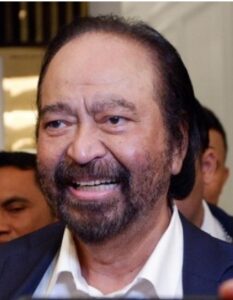
After their recent visit to the Bogor Palace, Defense Minister Prabowo Subianto and State-owned Enterprise Minister Erick Thohir said President Jokowi spoke to them about the national defense industry, and how the country must prepare its domestic defense. Meanwhile, Prabowo denied that the meeting discussed plans for presidential election’s ticket. The Constitutional Court rejected a lawsuit filed by Berkarya Party Chair Muchdi Purwopranjono against the requirements for a vice presidential candidate as stated in Article 169 letter n of Law No.7/2017 concerning general elections. The law reads that one the requirements to become a presidential or vice presidential candidate is to have never served as president or vice president for two terms in the same position.
According to Max Lane, Visiting Senior Fellow at the ISEAS-Yusof Ishak Institute, from the moment the Indonesian Democratic Party of Struggle (PDI-P) nominated Jokowi as its presidential candidate back in 2013 for the 2014 presidential election, and again in 2018 for the 2019 presidential election, Chairwoman Megawati Sukarnoputri has emphasized that Jokowi would act as a “petugas partai” (party task bearer). However, at this juncture in 2023, it is clearer that two-term President Jokowi is not, and probably never was, a “PDI-P task bearer.”
From early on, there were speculations that Jokowi might want a party of his own, based on organizations of relawan (“volunteers”). While this has not happened, it remains clear that Jokowi sees himself as a separate political actor and, as his presidency comes to an end, is trying to establish a basis for continuing his influence. This is reinforced by his attempt to establish a political dynasty. During Jokowi’s presidency, both his older son (Gibran Rakabuming Raka, Surakarta’s mayor) and his son-in-law (Medan Mayor Bobby Nasution) have won mayoral positions. Jokowi needs a political organization of his own. Now he appears to be waging psychological warfare with Megawati Sukarnoputri over who will be the most influential figure in the PDI-P in the future.
Indonesian Democratic Party of Struggle (PDI-P) politician Budiman Sudjatmiko paid a visit to Gerindra Party Chair Prabowo Subianto at his residence in Kebayoran Baru, South Jakarta. Budiman said he saw the Defense Minister as a leader capable of pulling Indonesia out of the global crisis. This is not the first time Prabowo and PDI-P politicians have exchanged compliments. This series of meetings between PDI-P politicians and Prabowo is widely regarded as a division within the PDI-P, following Ganjar Pranowo’s presidential candidacy.

According to John McBeth, journalist and author, President Prabowo Subianto? It has a ring to it these days and the sound is only getting louder as the defense minister and Great Indonesia Movement Party (Gerindra) chairman maintains his lead in the polls seven months out from next year’s February 14 presidential election. For most analysts, that’s because rival Indonesian Democrat Party for Struggle (PDI-P) candidate Ganjar Pranowo is struggling to gain traction in the shadow of overbearing matriarch Megawati Sukarnoputri and a family legacy she is determined to protect and preserve. Many of Indonesia’s 192.8 million voters may already be asking themselves whether they will be getting Pranowo or Megawati, judging by the way he shelters behind the façade he has built around himself as a social media star.
TikTok is emerging as the new electoral battleground in 2024 general elections as Indonesian politicians scramble to get the votes of members of Gen Z, many of whom will be first-time voters and bid fans of China’s widely popular video-hosting service. With 113 million users, TikTok is now the third-most popular content-sharing platform in Indonesia, behind Google’s YouTube and Meta’s Facebook. While so-called Gen Zers are seen as being politically apathetic, and while TikTok is far less polarized than Twitter or Facebook, electoral contenders are now turning to the new platform to tip the balance of electoral power in their favor. TikTok users form a major voting bloc. All nine parties with seats in the House of Representatives have begun their forays into TikTok, with each account having tens of thousands of followers. With 57,800 followers as of early July, the opposition Prosperous Justice Party (PKS) has the biggest following on TikTok, followed by the United Development Party (PPP) and the Gerindra party with 48,100 and 47,700 followers, respectively.
Indonesia’s next leader will be challenged in asserting civilian control over the military because President Joko “Jokowi” Widodo has eroded civil authority during his tenure and undermined reforms instituted since 1998, a new report says. Jokowi has allowed the armed forces to expand their influence and roles in civilian affairs since he took office in 2014, according to a report released by the Institute for Policy Analysis of Conflict, a Jakarta think-tank. The current president, who is due to leave office after the 2024 general election because of term limits, has relied on the military’s support for his political agenda and infrastructure projects, IPAC reported.
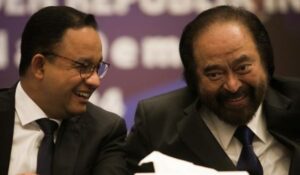
NasDem Party Chair Surya Paloh disclosed his reasons for nominating Anies Baswedan as a presidential candidate during the party’s gathering in Jakarta. He said his support for Anies was in appreciation for pluralism. “Why do we have to vote for Anies?” he asked, “Because we want to demonstrate pluralism, which we value not only in words but also in deed.” He explained that dynamic, moderate, and consistent thinking, as well as ideas to develop Indonesia as a whole, must continue to be fought for. Paloh would like to encourage election organizers and supervisors to carry out their legal obligations in a professional and moral manner as they prepare for the 2024 elections.
A survey conducted by the Indonesian Survey Institute (LSI) on July 1–8, Gerindra Party Chair Prabowo Subianto took first place among a number of presidential candidates chosen by the people, with 25.3 percent. Central Java Governor Ganjar Pranowo came in second place with 25.1 percent, while former Jakarta Governor Anies Baswedan came in third with 15.4 percent, and West Java Governor Ridwan Kamil came in fourth with four percent. Pollster Lingkaran Survei Indonesia (LSI), meanwhile released the most recent survey, conducted between May 30 and June 12, 2023, showing that Prabowo Subianto had the highest electability, at 34.3 percent; Ganjar Pranowo was the second with 32.7 percent and Anies Baswedan came the third with 22.1 percent.



